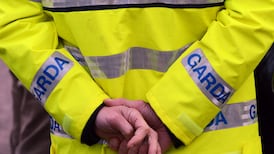Only one decision by the Director of Public Prosecutions (DPP) not to prosecute a case has been reversed in the past year, despite 192 applications for decisions to be reviewed.
The European Union Victims Directive, which came into effect almost a year ago but which has yet to be put into domestic legislation, requires that the DPP provides certain services to victims of crime both when the office decides not to prosecute, and when it does.
Addressing a conference in Dublin at the weekend, the DPP, Claire Loftus, said the most significant new right available to victims where a decision was made not to prosecute was to request the reasons for the decision.
“In the past year my office has received 554 requests for reasons. In broad terms, the largest number of requests for reasons is in relation to sexual offences, followed by offences of violence. The third largest category is for theft and fraud offences.”
Over the past year 192 applications for the DPP’s decision to be reviewed have been received, she said. A spokeswoman for her office subsequently told The Irish Times that, as a result, one decision has to date been reversed.
The director said the right to request reasons was a very important process and she was pleased that it was being exercised by so many victims in a system where the independence of the prosecutor was enshrined in statute. “It promotes greater understanding of sometimes very significant decisions affecting victims.”
The directive also contains rights for victims in cases where the DPP has decided to prosecute. Victims are kept up to date and informed about the progress of cases and are regularly consulted. However, even with excellent communications, the victims and their families are not always happy with the decisions made, Ms Loftus said.
The extension of the right of victims to tell the court, at sentencing, of the effect of the crime on them, has not resulted in discernible additional delays, or administrative burdens upon the courts, and gives the victim an important opportunity to explain how the crime has affected them. The director was speaking at the Annual National Prosecutors’ Conference, organised by her office.
War or law
Judge Sir Howard Morrison, of the International Criminal Court (ICC), addressing the same conference, said the pressures created by population growth and increased migration over the coming decades will have to be resolved by "war or law".
Population growth will create wars of food, water and living space and migration will take on a very different meaning, he said.
The pressures that will be created will have to be dealt with either by way of international law or violence. “Law or war, we have to choose.” International law, he said, was going to become more and more essential.
He rejected accusations that the ICC was racist because of its current focus on cases involving African nations. “I wouldn’t work for a court that had a hint of racism in it,” he said, pointing out that five of the first eight cases to come to the court were referrals by the countries concerned, while another two were referred to it by the United Nations Security Council.










